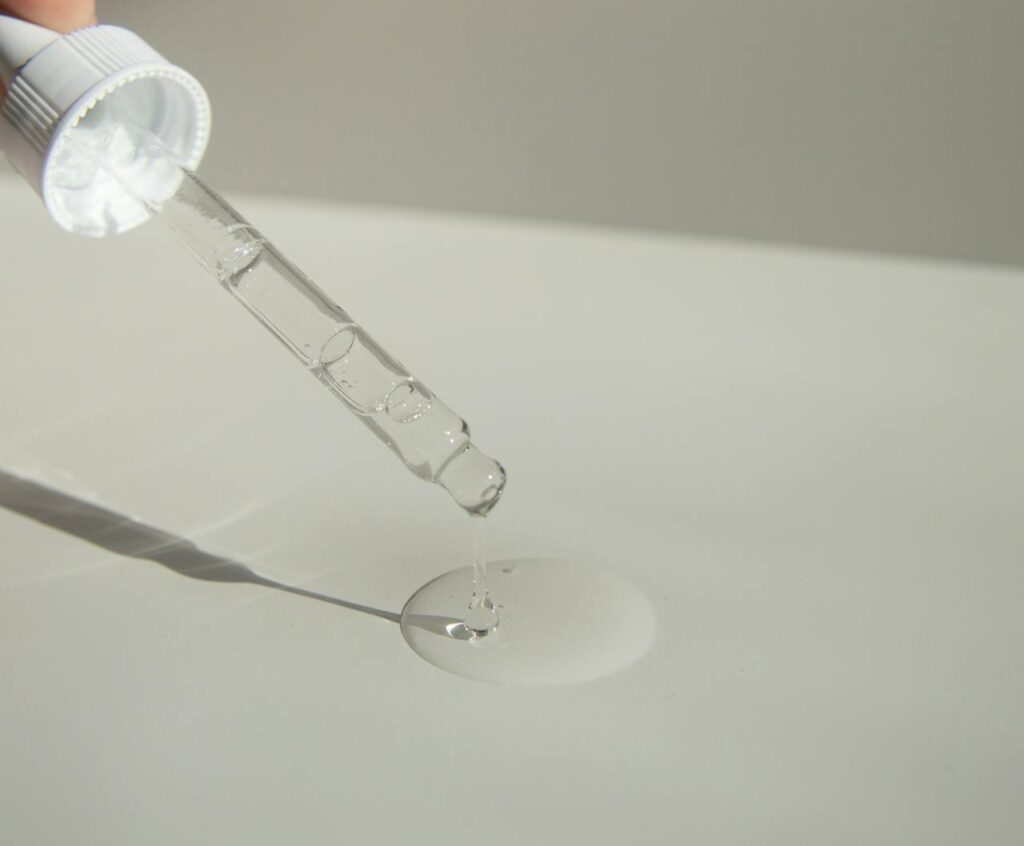
Can Lube Kill Sperm and Prevent Pregnancy? A Scientific Take
DipakMany couples wonder, “Can lube kill sperm or prevent your partner from getting pregnant?”
This is a vital question for men who may want to ditch the condom and enjoy some raw intercourse (though we don’t recommend it). It is also an important question for couples looking to conceive.
Whether personal lubricants can destroy sperm or hinder pregnancy can have life-changing consequences. So, you must thoroughly understand the topic to make informed decisions.
There are several myths and misconceptions around this topic, and we are going to dispel each one of them. We’ll dive deep into scientific studies and reveal the truth to our beloved readers.
So, put on your detective hats, and let’s get going.
The Science Behind Lubricants and Sperm

Not all vaginal lubricants are created the same when it comes to the great race to the egg. Let’s break down the different types:
Water-Based Lubes:
Water-based lubricants, like our own Glide, are highly popular and mimic the body’s natural lubrication. They’re versatile, easy to clean, and compatible with most toys and condoms.
Does water-based lube prevent pregnancy or kill sperm?
Some water-based lubricants may contain glycerin or parabens. These can mess with sperm motility or sperm’s ability to move around.
Therefore, your swimmers will have a tough time reaching the finish line or the egg. Some products may even kill sperm cells to a certain extent.
Read more: Is Water-Based Lube Edible?
Oil-Based Lubes:
Oil-based lubricants feel luxurious and last longer. However, they can create a thick barrier that traps sperm, stopping them in their tracks.
Additionally, coconut or baby oil can alter the vagina’s pH balance, decreasing the chances of conception.
However, don’t make the mistake of treating oil-based lubes as a contraception. It is not designed to prevent pregnancy (more on this later).
Silicone-Based Lubes:
Silicone-based lubricants are known for their durability. These bad boys last through the longest sessions without drying up.
Does lube kill sperm if they are silicone-based?
Silicone lubes don’t kill spermatozoa, even if they may slow them down.
We will discuss clinical studies on this topic in the following sections to provide more information.
Research Overview:
Lab studies show certain lubricants and ingredients to affect sperm viability and motility. This negative effect is less for fertility-friendly lubricants, but they are not 100% effect-free.
However, that also does not mean common lubricants act as a pregnancy prevention tool. They are also not 100% effective here.
Read more: Comparison between silicone and water-based lube.
Do Lubricants Kill Sperm?

Scientists have conducted several studies to find the effect of lubricants on sperm. They even tested sperm-friendly lubricants to see if they had any negative impact on conception.
Let’s discuss the findings below.
A journal, “The effects of coital lubricants on sperm motility in vitro,” tested the effect of oil-based lubes on sperm motility. The researchers chose baby oil, olive oil, and KY Jelly and tested their effects on spermatozoa.
What did they find?
Every lubricant, whether olive oil or KY jelly, had detrimental effects on sperm motility and slowed them down.
Another study reviewed 20 research papers and compiled the findings. It included different types, like silicone, water-based, and natural lubricants. The scientists noted the impact of these products’ osmolality, an important marker of sperm quality.
The researchers found almost all products to have adverse effects on semen quality. However, fertility lubricants had the least impact.
Additionally, natural options produced mixed results. Some affected semen quality, while others didn’t.
A 2017 research paper tested the effect of silicone, water, and sperm-friendly lubes on spermatozoa motility. What did the scientists discover?
- The oil-based product affected spermatozoa motility the least.
- The silicone option produced similar results. However, the motility increased after 60 minutes of exposure.
- The water-based lubricant had the worst effect and killed 95.23% of spermatozoa on average within 60 minutes.
However, the researchers recommended further studies to legitimize their findings.
So, Does Lube Kill Sperm?
Research shows that lubes affect the sperm’s ability to reach the egg by slowing them down. This is true for any type of lube, whether oil, silicone, or water-based.
However, fertility lubricants have the least damaging effects.
Moreover, commercial lubricants may affect other factors that influence pregnancy, like semen quality, function, and integrity. A few water-based lubes may even kill spermatozoa in certain amounts.
Lubes can also affect other vital factors, such as:
- pH levels: The pH level in some products may be too high or low. They can be hostile to sperm cells and potentially reduce their chances of survival.
- Osmolality: It’s a fancy term for the concentration of salt and sugars in semen. High osmolality can dehydrate sperm cells and reduce their ability to move around.
- Consistency: Thicker lubes are more restrictive for semen. They trap spermatozoa and prevent them from reaching the egg.
- Ingredients: Some ingredients are spermicidal, such as glycerin, parabens, or certain preservatives. They can damage the sperm cell membrane and reduce motility and vitality.
The bottom line?
- Studies have found vaginal lubricants to slow down sperm and affect fertility factors like quality, vitality, and integrity.
- Certain ingredients may even kill sperm to a certain percentage, but not completely.
- Even fertility-friendly products may slow down semen to some degree.
However, no studies show lubricants to kill sperm completely. Therefore, they are not effective as contraceptives and may not stop you from becoming a daddy or mom.
Read more: How Does Sperm Taste?
Does Lube Prevent Pregnancy?

We’ve seen that common lubricants don’t seem to kill spermatozoa. But do they prevent pregnancy in any other way? Do they affect a woman’s fertility?
Let’s find out.
The first study is “The effects of vaginal lubricants on sperm function.” It reviewed over 11 journals on the topic from 1950 to 2013. The researchers found that most products reduced motility and related factors.
However, fertility lubes and plant oils had lower effects.
The paper also noted that lubrication used by males for masturbation during the collection of semen samples had no noticeable impact.
The researchers concluded that these products may impact semen negatively, but they don’t affect female fertility.
The next journal also focuses on sperm function. The scientists tested the impact of different lubes, including fertility-friendly lubes, on female fertility.
They found most products cause a decrease in sperm motility, while fertility-friendly options are affected the least. However, none of the products had any significant effect on DNA integrity, nor did they cause DNA damage.
Therefore, this study also didn’t find lubes to prevent pregnancy completely. Lubricants just had adverse effects to some degree.
The last paper we’ll discuss is “Effect of vaginal lubricants on natural fertility.” It tests the impact of over-the-counter lubricants on women’s fertility during sexual intercourse in the reproductive tract.
The scientists chose women between 30 and 44 years old without any history of infertility who had been trying to conceive for a minimum of 3 months. They noted their vaginal lubrication use, sexual activity, menstrual cycles, and pregnancy test results for 6 months.
A comparison of results between lube users and non-users showed no significant difference in fertility. The researchers concluded that lubricant use during intercourse doesn’t seem to reduce the likelihood of conceiving.
Therefore, here, too, commercial lubes didn’t seem to negatively impact a woman’s ability to conceive or prevent pregnancy.
Choosing the Right Lubricant
Making informed decisions is essential when it comes to choosing the right lube. We’ll divide this section into two parts for your convenience.
If You Are Trying to Conceive:
Not all products are equal. We advise you to go for fertility-friendly or sperm-friendly lubes if you’re among trying-to-conceive couples.
These products mimic natural lubrication, offer a favorable pH level, and have a consistency that’s like a five-star stay for your semen. They’re free from harsh chemicals and have formulas to support sperm motility and viability.
Additionally, avoid spermicidal lubes that contain sperm killers like nonoxynol-9. Refrain from using oil or silicone lubes, as they are thick and may trap sperm.
Natural lubes may also be less unfavorable for making a baby. Avoid oil- or silicone-based lubricants, as they reduce semen mobility.
If You’re Looking for a Contraceptive:
Lubricants are not effective contraceptives. Even spermicidal lubes are not guaranteed to prevent pregnancy.
Therefore, always use reliable methods like condoms or pills to avoid getting pregnant. You may use spermicidal products alongside, but they should never be your sole recourse.
Read the Label:
Look for information on the label and check the certifications. The bottle will mention whether it’s fertility-friendly or a spermicide.
Additionally, check the ingredients to spot any problematic items. These will depend on your goal, i.e., preventing or facilitating pregnancy.
Certifications from reputable institutions like the FDA are an added advantage.
Read more: How to Make Lube at Home.
Roundup: Do Lubricants Kill Sperm
Scientists have tried to answer the question, “Can lube kill sperm?” Their research does not seem to indicate that lubricants can kill sperm effectively. This even applies to spermicidal products, which are not 100% effective.
Additionally, lubes don’t seem to prevent pregnancy or lower the chances of conception. This is despite affecting sperm motility, quality, and function.
So, lubricants should never be used as a contraceptive.
Couples trying to conceive should stick to fertility lubes. They are formulated to be sperm-friendly and not interfere with reproduction.
It is to be noted that research has conflicting results, and we need more studies to confirm the current scientific consensus. We advise you to talk to a medical professional about lube use if you’re trying to conceive.
